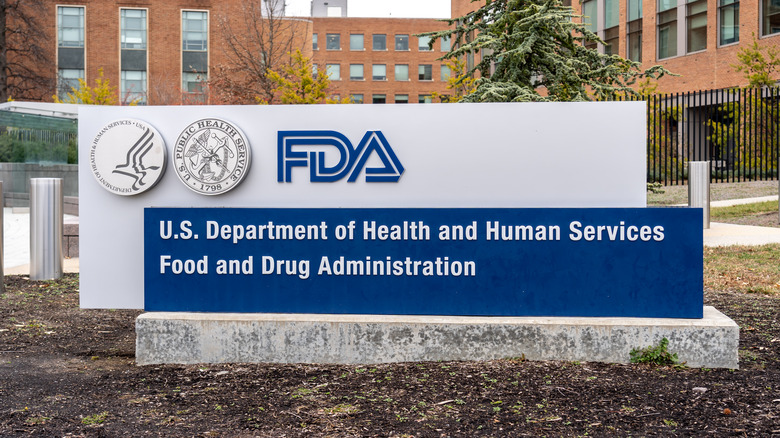New Report Suggests Inadequacies In The Management Of The FDA
It stands to reason that our governmental apparatuses can only function when the people they serve have some faith in them. While there are ostensibly the appropriate checks and balances in place, the trust we place in the various departments and agencies that oversee aspects of trade, finance, agriculture, media, etc. is usually well-founded.
But every now and then, a report comes out from internal inspectors general or outside watchdogs that make us question that faith. For instance, CNN reported on Senate findings that suggested several federal groups tasked with maintaining our nation's cybersecurity have failed to meet the mark. And famously, the Securities and Exchange Commission's lack of appropriate oversight allowed the Bernard Madoff Ponzi Scheme at Enron to continue for years (via U.S. Department of Justice).
But news of the government failing to do its job is never quite as unsettling as when it has to do with the regulation of the things we eat, drink, and take as medicine. According to the Smithsonian, the Food and Drug Administration (FDA) was created as part of the 1906 Pure Food And Drug Act, which sought to curb the often misleading — at times altogether fabricated — information and claims for medicine and foodstuffs. It gave the government a direct role in verifying what products contained and that they performed as they claimed to.
Breaking up the FDA
As transformative as the Pure Food and Drug Act and the creation of the FDA has been to the health of Americans, the agency has not been without its missteps. For instance, as the body with the most direct oversight of the pharmaceutical industry in the U.S., many believe they should shoulder much of the blame for the continuing opioid crisis. The American Medical Association's Journal of Ethics points to the FDA's allowance for the promotion of opioids to treat chronic pain and their "failure to obtain evidence of long-term safety and effectiveness" of the drugs as major contributing factors to the crisis.
Now, a new report by the Reagan-Udall Foundation for the FDA includes findings that may pose an existential threat to the agency, says the Washington Post. The Reagan-Udall investigators were tasked by FDA itself to assess internal strengths and weaknesses, and they found that its staff was overburdened and stretched thin, that there had been serious failures of internal communication, and problems with their existing leadership. The report was spurred by the infant formula crisis, which saw four babies sickened, and two left dead due to improper oversight of the sanitary conditions at an Abbott production facility.
The Reagan-Udall Foundation report includes some sweeping recommendations for the FDA, the most drastic of which would see the organization fragmented in an effort to put more emphasis and oversight on the "human foods" segment of their mandate.

